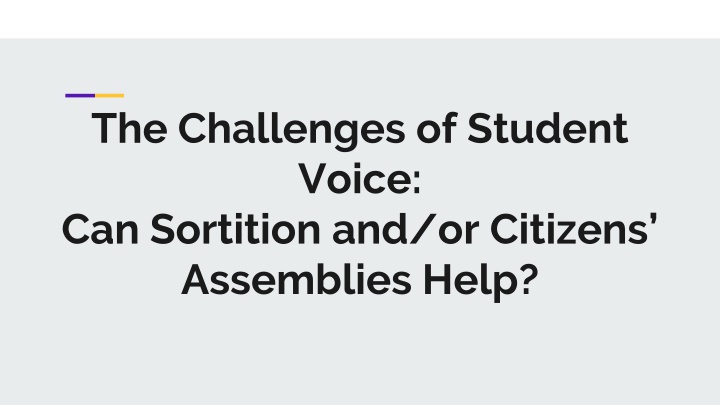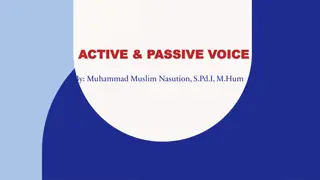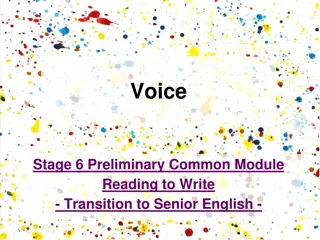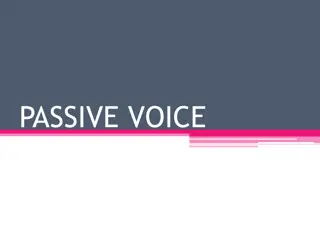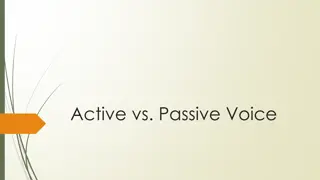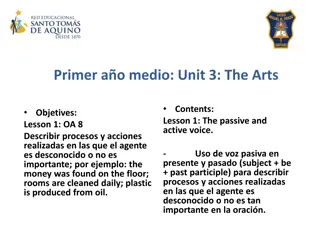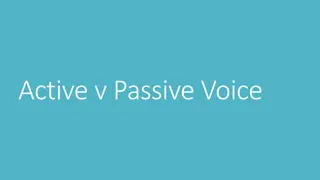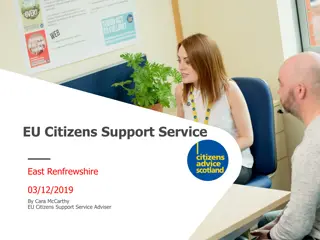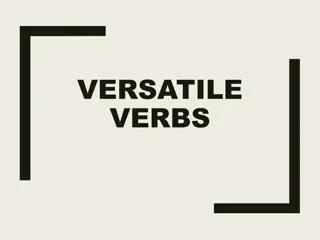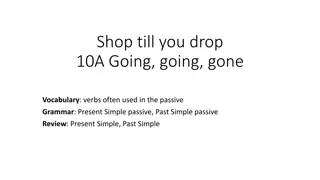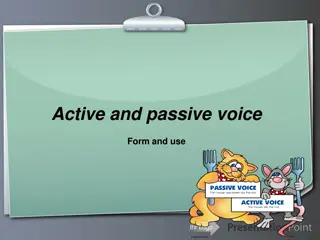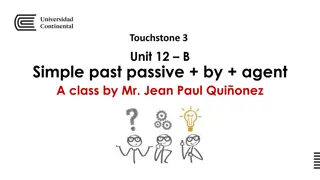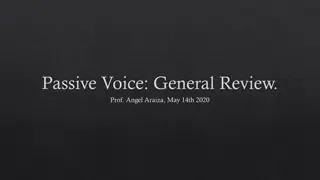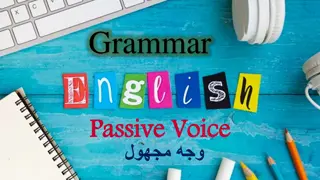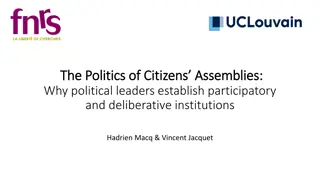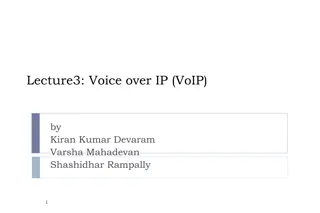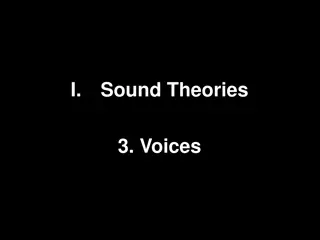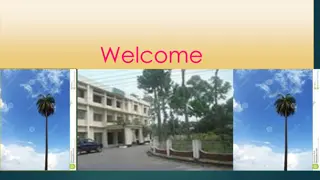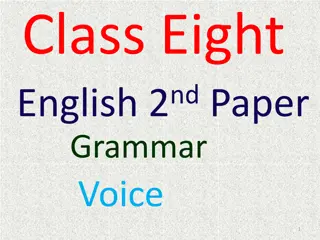The Challenges of Student Voice: Can Sortition and/or Citizens Assemblies Help?
Explore the concept of sortition and citizens assemblies in empowering student voice through historical insights from ancient Athens to modern applications like law court juries and deliberative polls. Discuss the potential of these methods to enhance democracy within educational settings.
Download Presentation

Please find below an Image/Link to download the presentation.
The content on the website is provided AS IS for your information and personal use only. It may not be sold, licensed, or shared on other websites without obtaining consent from the author.If you encounter any issues during the download, it is possible that the publisher has removed the file from their server.
You are allowed to download the files provided on this website for personal or commercial use, subject to the condition that they are used lawfully. All files are the property of their respective owners.
The content on the website is provided AS IS for your information and personal use only. It may not be sold, licensed, or shared on other websites without obtaining consent from the author.
E N D
Presentation Transcript
The Challenges of Student Voice: Can Sortition and/or Citizens Assemblies Help?
Student Voice: Can sortition help? Welcome and introductions Ricardo Visinho (he/him) LSESU Head of Student Voice Evan Saunders (he/him) LSESU Student Voice Coordinator A Brief Introduction to Sortition & Citizens Assemblies Workshop Exercise Group Feedback
A Brief Introduction to Sortition & Citizens Assemblies
A Brief Introduction to Sortition What do you think sortition is? Where do you think sortition originates? Athens!
A Brief Introduction to Sortition In 5th century BC Athens democracy meant direct democracy (rule by the people), whereas election was considered to be a form of oligarchy (rule by the few) or aristocracy (rule by the best) Any of its 30,000 eligible citizens could attend the Ecclesia (its general assembly meeting) to propose laws, bring public lawsuits or address its fellow citizens several times per month Where selection otherwise took place, its positions/bodies primarily appointed by random lottery: Jurors Magistrates The Boule a 500 member agenda setting governing council Only positions which were felt to require expertise (such as appointment of generals) were elected
A Brief Introduction to Sortition How representative do you think Athenian democracy was? Only included 30,000 eligible citizens Excluded several groups, including women, foreigners, slaves, children and others whose rights were otherwise revoked It is estimated only 10-20% of the population were eligible for sortition Also used down the years in different ways in Lombardy, Florence, Venice, India and Switzerland
A Brief Introduction to Sortition Examples where sortition is used today Law court juries In some countries such as UK and US Deliberative poll Type of opinion poll designed to gauge how opinions might change when presented with more information and thoughtful discussion Citizens assemblies or citizens juries Grown in usage in recent decades How students now pass policy at LSESU
What is a Citizens Assembly A citizens assembly brings together a broadly representative bunch of people, selected by lottery, to decide how we should live together. The Sortition Foundation Key word here is representative Different, therefore, to pure lottery systems in that they aim to create a microcosm of a particular public, community, group, society, etc.
How do Citizens Assemblies work? You have sortition process and an assembly process 1. Sortition process a. Invitation i. Large number of invitations sent out to members of the public/community at random asking them to participate b. Stratification i. From those who respond positively, a second lottery takes place according to pre-defined criteria to select a cohort that is demographically representative 2. Assembly process a. Once selected, members of the citizens assembly are provided with time, access to people with relevant viewpoints/expertise and other resources so that they can: i. Learn deeply about the issue ii. Deliberate about the issue iii. Decide and issue a shared set of recommendations
Examples of Citizens Assemblies Global Assembly a. A 100 person citizens assembly composed of people from around the world supported by the UN to discuss issues facing the entire world. b. First Global Assembly designed to coincide with the 2021 Glasgow COP and focused on issue of climate change Ireland s Citizens Assembly a. Set up in 2016 b. Played crucial role in shaping Ireland s policies on abortion, climate change, population ageing and fixed-term parliaments Citizens Assembly of British Columbia a. Formed in 2004 and 2009 b. Focused on electoral reform in provincial elections in Canada French Citizens Convention for Climate: a. Set up in 2019 to propose greenhouse gas reduction measures
What are the pros of sortition and/or citizens assemblies?
Pros Genuinely representative More egalitarian - breaks down systemic societal biases/barriers which disproportionately prevent marginalised demographics from accessing positions of power Counters over-representation of politically active groups Safeguards against factionalism Less corruptible Cognitive diversity (different ways of seeing the world and interpreting events within it are introduced) Greater efficiency (people are there for one purpose only) Less political (not voted in/linked to parties, etc.), so reduces negative aspects of politics such as quid pro quos More democratic (in original meaning of the word) - empowers and engages ordinary people
What are the cons of sortition and/or citizens assemblies?
Cons Are ordinary people competent enough to make big decisions on every issue? Might be less representative (if pool drawn from is too narrow) Less legitimate vs elections (less democratic in terms of how democracy is broadly understood today) Less accountability (people not subject to reelection or otherwise accountable for decisions taken) Less enthusiasm (being selected by lot means the exclusion of those who might passionately volunteer to engage in those debates and decisions by seeking election, for example)
Workshop What do we mean by student voice?
Workshop Break into groups Going to get you to each consider some different student voice challenges and want you to consider whether either sortition and/or citizens assemblies might be able to help in some way and if so, how? After 15 minutes, groups to feed back
Workshop 1. 2. 3. 4. Student Voice Problems to Consider: How to ensure that the voice we get from students is genuinely representative? How to ensure that when students tell us something, that something is genuinely done with that? How to ensure that students have the right opportunities to exercise student voice? How to ensure that students feedback feels genuinely valued? Feel free to answer from the perspective of the Union (from whichever teams/divisions) or the institution (inside the classroom or outside) In your groups answer: Might sortition and/or deliberative democracy be able to play a role in addressing this? If so, how?
THANK YOU! If you have any questions or wait to connect subsequently, you can contact us at: Ricardo Visinho - r.m.visinho@lse.ac.uk Evan Saunders - e.saunders2@lse.ac.uk
